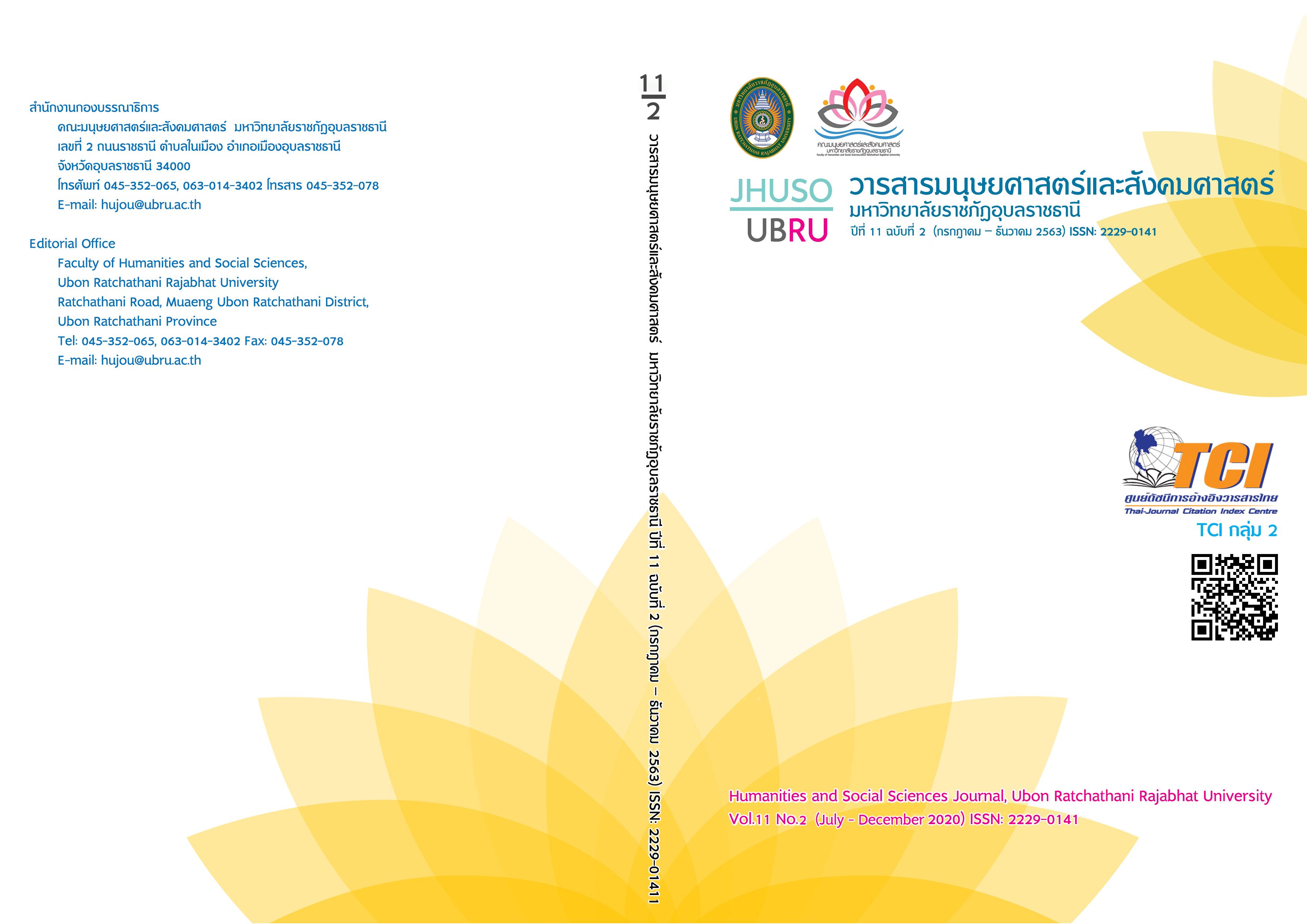CEREMONIAL MUSIC FOR KUAN KAW THIP CEREMONY IN NAKHON RATCHASIMA
Main Article Content
บทคัดย่อ
Abstract
The research was to study the Ceremonial Music, the society reflection, and culture for Kuan Kaw Thip Ceremony in Nakornratchasima Province. This was used descriptive analysis on ethnomusicology which collected the data from 3 Districts in Nakhon Ratchasima Province including T. Tanodesilp band, Somposh Tavornsiri band, and Pakhiriwan Temple band. Results show that T.Tanodesilp band of Tanode Temple in Mueang district performs the background music with Piphat Kreang khu (Double Sextet Ensemble) and the ceremonial music is as follows The Evening Prelude Suite, Morning Prelude Suite, Kuan Kaw Thip Suite, Sathukarn, and Krao Ram. Somposh Tavornsiri band of Srikhewkanaram Temple of Sikhio District performs the ceremonial music with Piphat Kreang khu ensemble consists of slow tempo on Soi Son, Sathukarn, Maha Roek-Maha Chai, Rua, Samla, Trabongkan, Tra Pravitsanukam, Nangkin-Senlao, La and Choet, and Krao Ram. Pakhiriwan Temple of Chalermprakiet district doesn’t have ceremonial music but use the Sorapanya hymn for Kuan Kaw Thip Ceremony prayer. The society reflection and the Kuan Kaw Thip Ceremony culture in these 3 Districts revealed belief, faith, and the adherence to Buddhism that significantly upholds the traditions of rituals inherited since Buddhist era until now. Moreover, the Kaw Thip was magical food and sacred, so if someone eats would be merit. This ceremony also reflects the way of living about their occupation in farming and agriculture along with the participation between people in the community, temples and government. It creates love, harmony, generosity within each other and finally help preserving and continuing the culture to remain forever.
Article Details
เอกสารอ้างอิง
Sciences. Prince of Songkla University Pattani Campus.
Cultural office of Uttaradit. (2008). Management for local development in order to create
unity in the community. A case study of the rice stirring tradition (Khao Thip) of Kasem Chittaram temple Mueang District Uttaradit Province. Thai culture, 49 (2), 42-43.
King Chulalongkorn. (2010). Rite twelve months. Issue print 2010. Bangkok: Company
Bunakij Publishing 1991.
Prasertsil, P. (1998). Foundation of Thai culture. Bangkok: Suan Dusit Rajabhat Institute.
Hiranrak, S. (n.d.). Cooperative Learning in music. Translate and compile (Cooperative Learning in music by Phyllis R. Kaplan and Sandra L. Stauffer, MENG:
The National Education. Association for Music Accompanying instruction document.
Master of Arts Program (music). Subject music Education. College of music. Mahidol
University.
Rungrueng, P. (2009). Ritual music on the occasion of the 75th anniversary Thammasart
University and organizing Thai higher education music 37 times. Academic
conference documents. Bangkok: Tech Promotion and Advertising CO., Ltd.
Wasi, P. (1995). National education and local knowledge: Folk wisdom and rural
development (2nd edition). Bangkok: Amarin Printing.
Wongted, P. (1982). Native folk. Bangkok: Chao Phraya Publisher.


